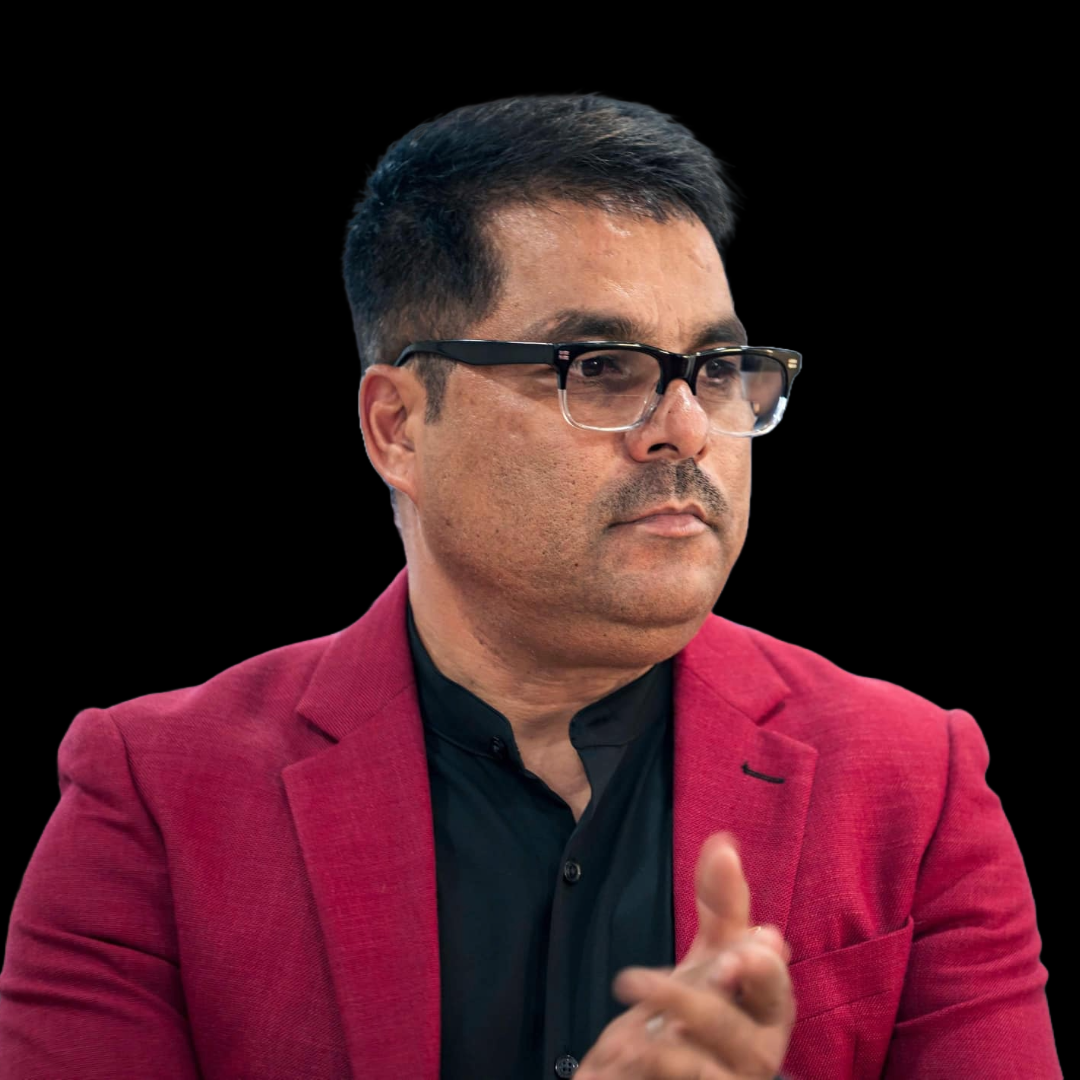Padam Thakurathi was born and raised in a farming family in Rupal, a village development committee in Dadeldhura District, Nepal. His journey began at Ashigram Higher Secondary School, where he laid the foundations of his education. After completing his SLC, Padam ventured to Pithauoragadrh, India to pursue a Bachelor’s degree from Kumau University. His thirst for knowledge led him to embark on a Master’s degree, but destiny had a different path in store for him. Joining the esteemed ranks of the Nepal Police Force in 1994, he dedicated over nine years to serving and protecting his community.
Padam seized a significant opportunity when chosen as a policy advisor in war-torn South Sudan, serving with the UN Peacekeeping force. For 18 months, he fearlessly immersed himself, becoming a trusted trainer for the Sudani Police. The mission was dangerous, especially in Darfur. Sudan was still engulfed in a devastating civil war due to external interests and a failure of leadership to understand the situation. Padam saw innocent lives lost due to senseless violence.
Returning to Nepal in 2006, Padam encountered a nation engulfed in uncertainty during the tumultuous period of the Maoist insurgency. Faced with grave security threats, including death threats, he made the difficult decision to seek refuge in the United States in 2007, driven by the imperative to safeguard his life and secure a future for his children.
Life in the United States beckoned Padam towards a new chapter. Arriving in San Pablo, California, his once-settled existence underwent a seismic shift. Initially finding solace in a job at a gas station, he grappled with the challenges of adjusting to a radically different lifestyle.
Seeking better opportunities, Padam made the transition to Nebraska, enticed by the prospect of starting his own business. However, the harsh winter climate prompted a change of plans, leading him to Austin, Texas, where he believed the promise of prosperity awaited. Immersed in the world of gas stations, he boarded and embarked on a journey of knowledge acquisition, diligently working for two years to gain firsthand experience in the industry.
In 2010, Padam realized his entrepreneurial aspirations, establishing his first gas station in Temple, Austin. A venture into the beauty salon business followed in 2013, but after three years, he made the difficult decision to relinquish ownership. Undeterred, Padam acquired another business in 2016, subsequently expanding his portfolio with the addition of three more gas stations in 2018 and 2019 through strategic partnerships. His business empire now thrives in Rogers City, Little River Academy, Buckahold, and Waco, Texas. In 2022, Padam ventured into the liquor store business, leveraging his expertise and hard work to ensure the success of all his endeavors.
Reflecting on the gas station industry, Padam notes its allure for Nepali Americans, serving as a familiar and accessible business opportunity. Many individuals with prior experience in the field choose to venture into gas station ownership, drawn to its relative ease of management and familiarity within the community. Padam ardently advocates for entrepreneurship, as he says, “Investing is always the best idea,” believing it to be the key to liberation from the confines of a 9-to-5 job.
Padam’s dedication extends beyond his business ventures, as he emerges as a prominent figure in the realm of social work in Austin. Serving as the Vice President of the Greater Austin Nepali Society from 2012 to 2016, he channeled his energies into community initiatives. His contributions also spanned leadership roles, including General Secretary of NRNA Texas Chapter from 2017 to 2019 and a position on the Board of Directors of NRNA NCC USA from 2019 to 2021. Engaging with organizations like Sudar Pasimeli Samaj, Texas, Padam embodies the spirit of unity and community upliftment.
Inspired by the Pakistani-American community’s cohesive support for one another, Padam believes that the Nepali community can learn valuable lessons from their unity and expand business horizons to empower their people.


